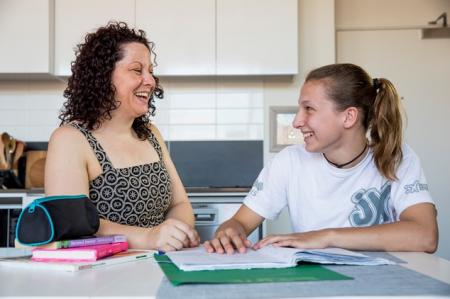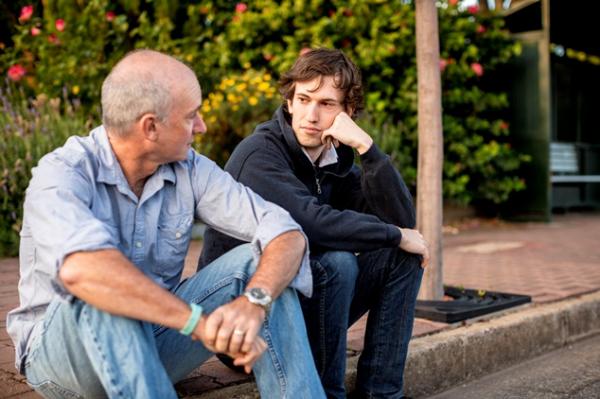When someone in your family has a mental health problem:
-
Keep communication open, show empathy and don't rush into judgements.
-
Be available without being intrusive or 'pushy'.
-
Spend time with the person.
-
Take an interest in their activities, and encourage them to talk about what's happening in their life.
-
Take the person's feelings seriously.
-
Encourage and support friendships.
-
Encourage activities that promote mental health, such as exercise, good eating, regular sleep, and doing things the person enjoys.
-
Give positive feedback.
-
Let the person know that you love them. They may not always admit it, but this is likely to be very important to them.
How to find help If you are worried about the health and safety of a young person:
-
Talk openly and honestly with them, and let them know that you are concerned.
-
Reassure them that you will be there for them, and ask what they need from you.
-
Let them know that there is lots of help available. They will be able to talk to health professionals if this is what they prefer.
-
Help find an appropriate service, such as a headspace centre and support them in attending.
-
Ask direct questions if you are concerned about suicide. For example, have you been thinking about death? Have you thought about ending your life?
-
Help the person build a support network.
-
Look after yourself as well. Get some support by talking to people, and seek professional help for yourself if you need it.
Some important things to remember about young people
- Young people need a sense of belonging, connectedness to their family (whatever they say!), friends and community, and to make a meaningful contribution.
- Firm and consistent boundaries are essential, but try to involve the young person in negotiating acceptable 'rules'.
- A balance between self-responsibility and support helps a 'child' grow to an 'adult'.
- Young people need to do things differently from their parents and become individuals in their own right.
- Teenagers and young adults often question everything their families say and do.
- Try to stay confident in yourself, but also be open to learning.
- Mistakes happen. Use mistakes - whether by you or the young person - to learn and keep moving forward. Having some conflict and then repairing the relationship is more important than avoiding doing anything because you fear upsetting the young person.
Looking after yourself
It is important that as you care for someone that you also look at what you need to remain fit and healthy. Being at your best means that you can offer greater patience and a more considered approach as to how you can help.
Parents and carers of young people can often neglect their own needs and not know where to get information and support for themselves. The Carer Information Pack produced by the Commonwealth Carer Resource Centre contains fact sheets that provide information to support you.
Get professional support
If you feel you need help there are a range of ways we can support you.


